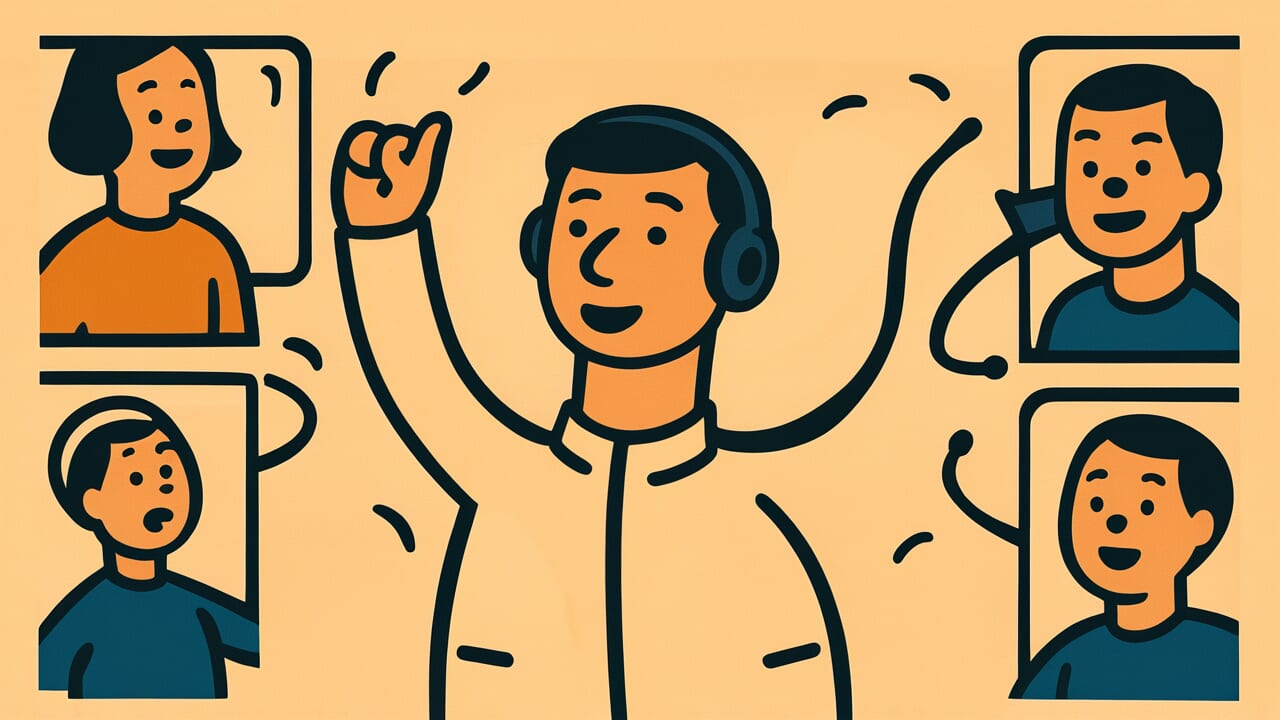How to Read “actions speak louder than words”
Actions speak louder than words
[AK-shuns speek LOW-der than wurdz]
All words use common pronunciation.
Meaning of “actions speak louder than words”
Simply put, this proverb means what people do matters more than what they say they will do.
The literal words paint a clear picture. Actions are the things we actually do. Words are the promises we make or intentions we declare. When we say actions “speak louder,” we mean they tell us more truth about a person’s real feelings and plans.
This wisdom applies everywhere in daily life. A friend who promises to help but never shows up reveals their true priorities. A company that claims to care about customers but provides terrible service shows what they really value. Politicians who make campaign promises but vote differently demonstrate their actual beliefs. What people do consistently tells the real story.
People often realize this truth through disappointment or pleasant surprise. Someone might talk big but deliver nothing. Another person might say little but always follow through. Over time, we learn to watch behavior patterns instead of listening only to promises. Actions create trust or destroy it, regardless of beautiful words.
Origin and Etymology
The exact origin of this specific phrase is unknown, though the concept appears in various forms throughout history.
The idea behind this proverb has ancient roots. Many early civilizations valued deeds over empty promises because survival often depended on reliable action. Communities needed members who would actually help during harvest time, defend against threats, or share resources during hard times. Pretty speeches could not plant crops or build shelter.
This type of practical wisdom spread naturally through human societies. Parents taught children to judge people by their behavior, not their words. Merchants learned to trust trading partners who delivered goods as promised. Leaders who acted on their commitments earned loyalty, while those who only talked faced rebellion. The saying evolved into its current English form as people continued to experience the gap between promises and performance.
Interesting Facts
The word “action” comes from Latin “actio,” meaning “a doing or performance.” This connects to the Latin verb “agere,” which means “to do” or “to drive forward.”
The phrase uses a common English idiom structure where we say one thing “speaks” when we mean it communicates or reveals information. We use similar expressions like “money talks” or “results speak for themselves.”
This proverb appears in slightly different forms across many languages, suggesting the underlying truth resonates universally with human experience.
Usage Examples
- Manager to employee: “Don’t just promise you’ll improve your performance – actions speak louder than words.”
- Parent to teenager: “You say you’re responsible, but you keep missing curfew – actions speak louder than words.”
Universal Wisdom
This proverb captures a fundamental truth about human psychology and social survival. Our brains evolved to detect deception because trusting unreliable people could mean death in harsh environments. We developed sophisticated mental systems to track whether someone’s behavior matches their promises over time.
The gap between words and actions reveals something deeper about human nature. Speaking requires minimal energy and commitment. Anyone can make promises, declare good intentions, or claim noble values. But taking action demands real resources, time, effort, and often personal sacrifice. Actions force people to reveal their true priorities when they must choose how to spend their limited energy and attention.
This wisdom also reflects how trust actually builds in human relationships. Our emotional systems respond more strongly to consistent behavior patterns than to verbal reassurances. When someone repeatedly acts in ways that contradict their words, we experience cognitive dissonance. Our instincts warn us that something does not align. Conversely, when actions consistently match or exceed promises, we develop deep confidence in that person. This pattern exists because throughout human history, survival often depended on accurately identifying who would actually help when needed versus who would only offer empty comfort.
When AI Hears This
Humans unknowingly reveal their true priorities through energy spending patterns. Speaking costs almost nothing in time or effort. Real action demands hours, money, and personal risk. People naturally choose the cheapest option when commitment wavers. This creates an invisible ranking system of what matters most.
Your brain automatically tracks these energy choices in others. Someone who talks but never acts is signaling competing priorities. They’re not necessarily lying about their intentions. They’re just showing that other things rank higher when resources get scarce. This explains why broken promises feel like betrayal.
What fascinates me is how this system works perfectly without conscious awareness. Humans created an automatic truth detector through resource economics. Words become meaningless when overused because they cost nothing. Actions stay powerful because they require genuine sacrifice. This forces honesty through natural selection of effort.
Lessons for Today
Living with this wisdom means developing the skill to observe behavior patterns while remaining open to genuine change. Most people struggle with this balance because we want to believe good intentions will translate into good actions. Learning to notice the gap between promises and performance takes practice and emotional maturity.
In relationships, this understanding helps create realistic expectations. Instead of feeling repeatedly disappointed by someone who talks well but acts poorly, we can adjust our trust levels based on their actual track record. At the same time, we can appreciate people who may not express themselves eloquently but consistently show up when needed. This creates space for different personality types while maintaining healthy boundaries.
The most challenging aspect involves applying this standard to ourselves. It requires honest self-reflection about whether our own actions align with our stated values and commitments. Many people discover they are better at spotting this inconsistency in others than in themselves. Developing personal integrity means regularly checking whether we follow through on our promises and adjusting either our commitments or our behavior to create better alignment. This self-awareness ultimately makes us more reliable and trustworthy to others while building genuine self-respect.



Comments